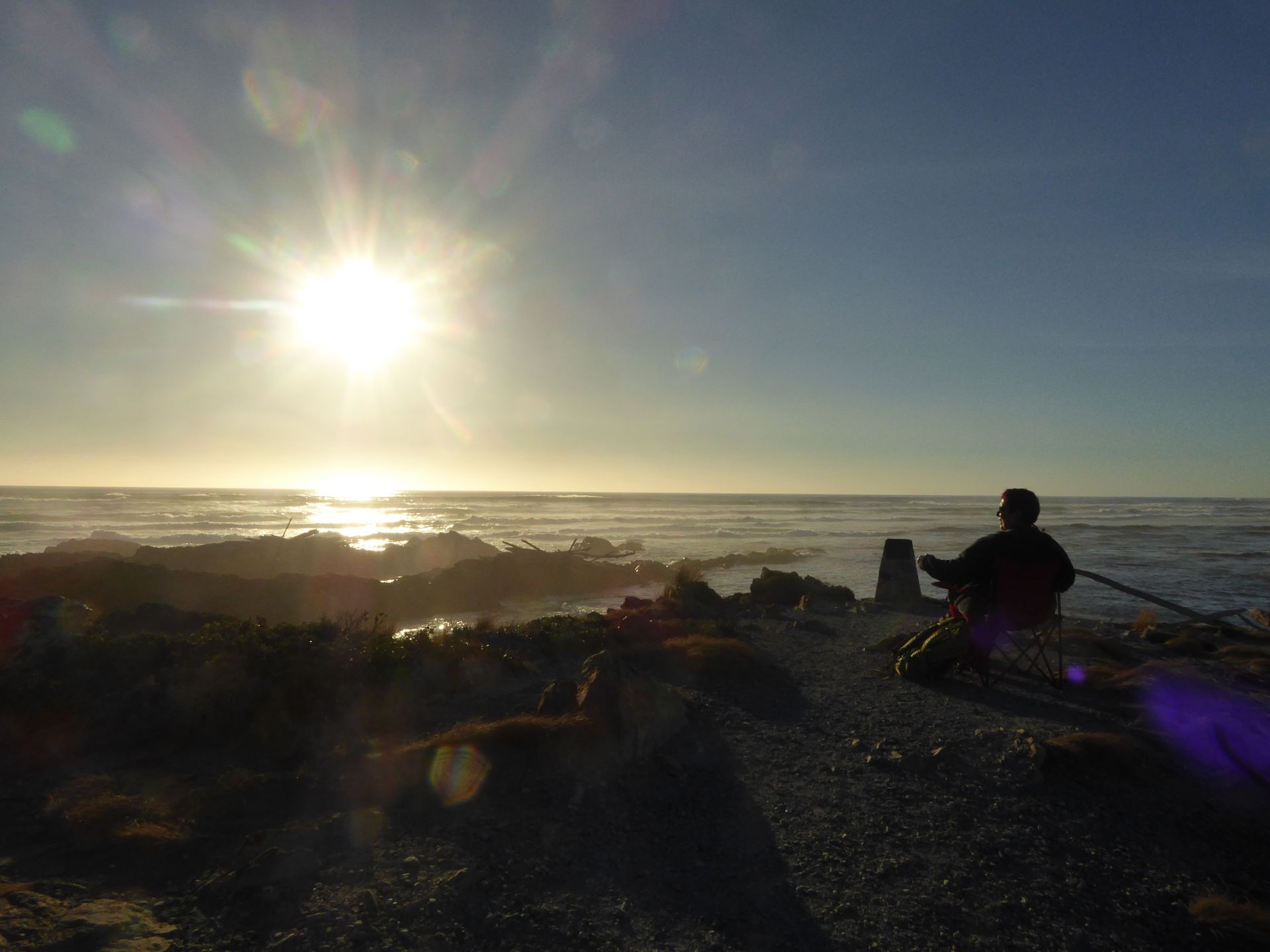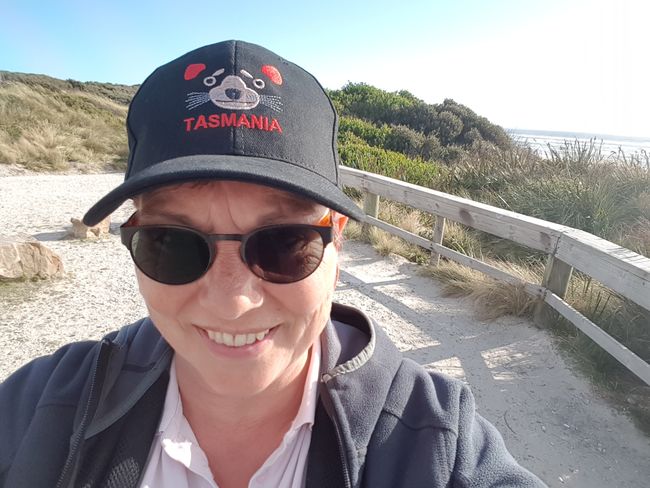Beautiful Latrobe, beaches and even more animals in Narawntapu
प्रकाशित: 06.02.2018
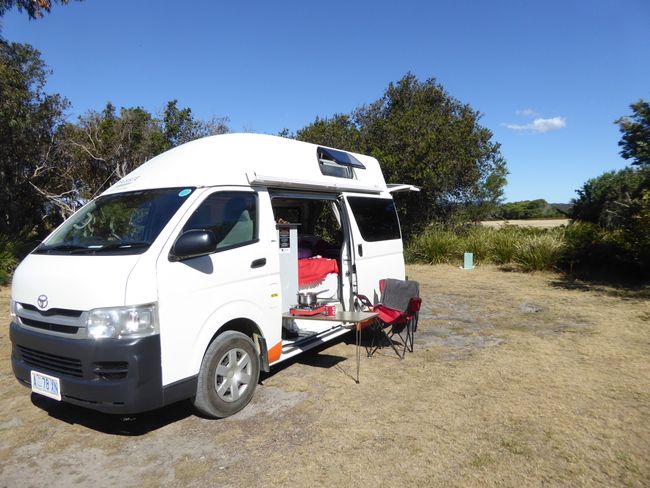
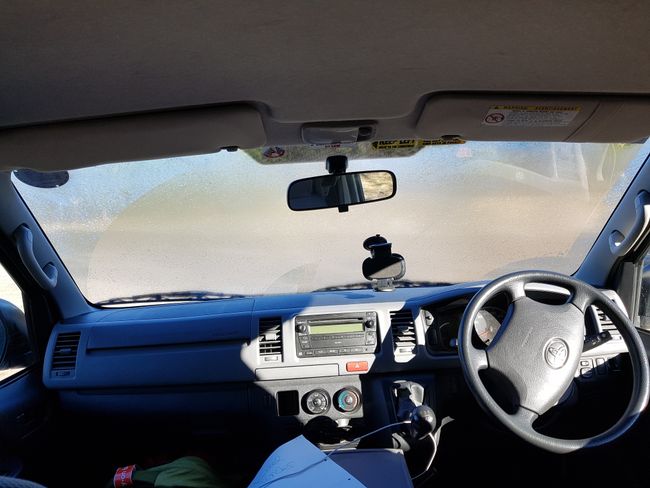
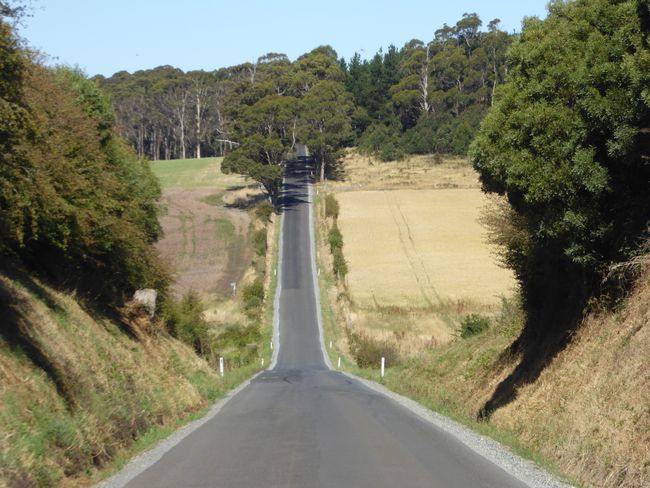
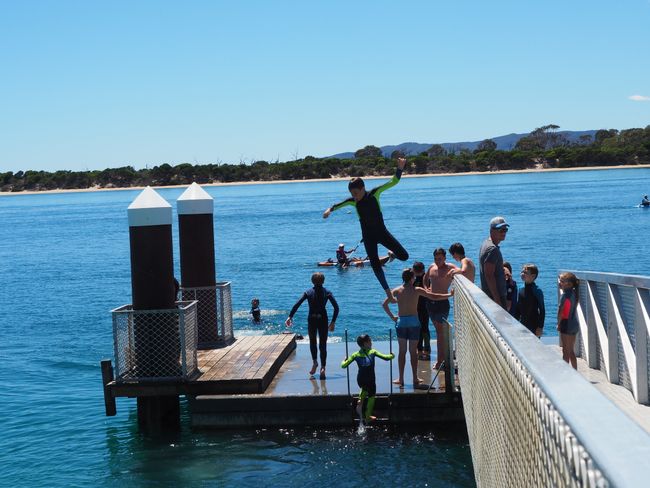
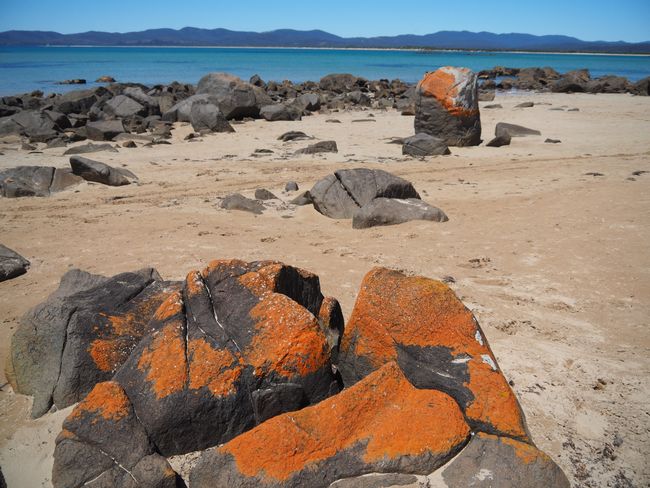
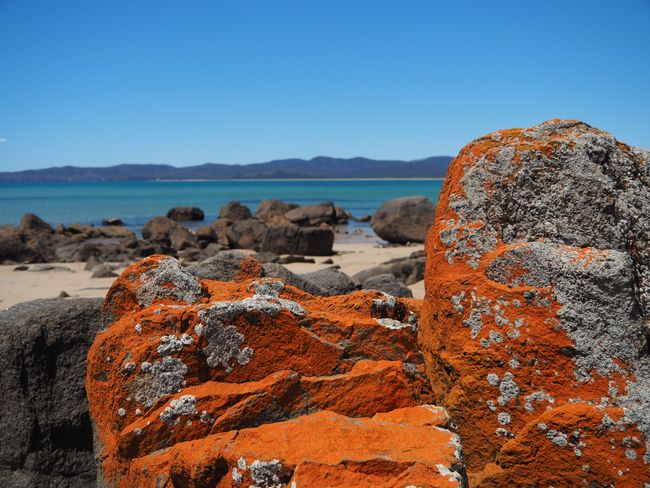
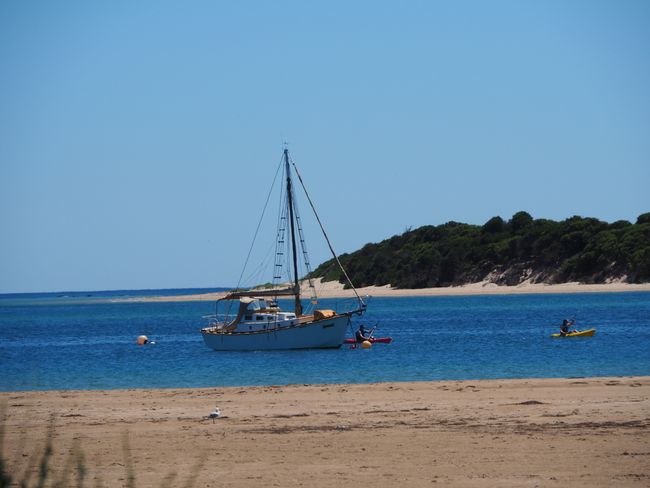
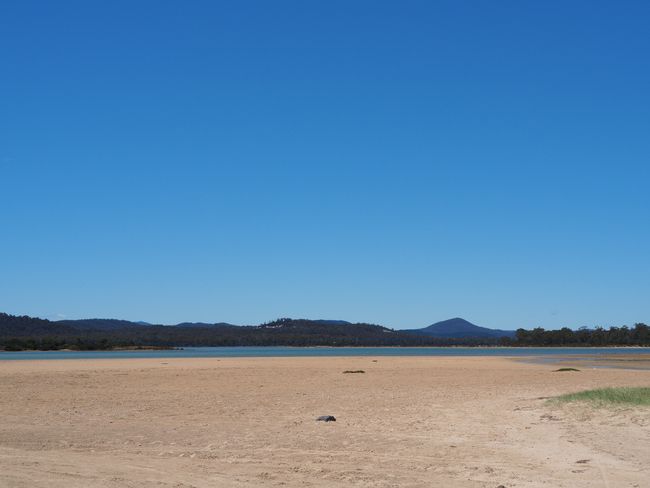
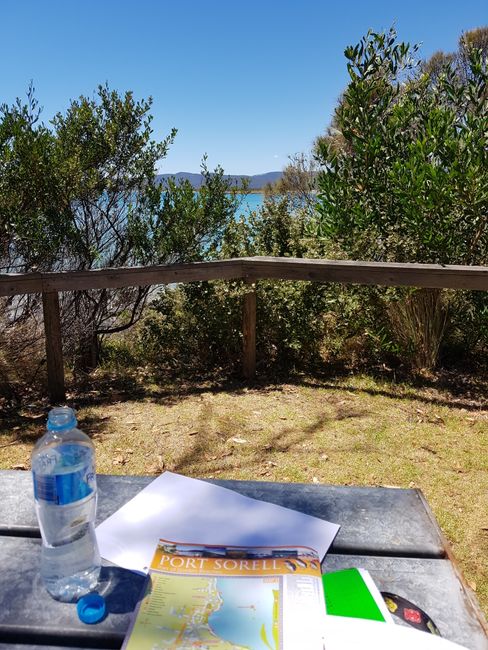
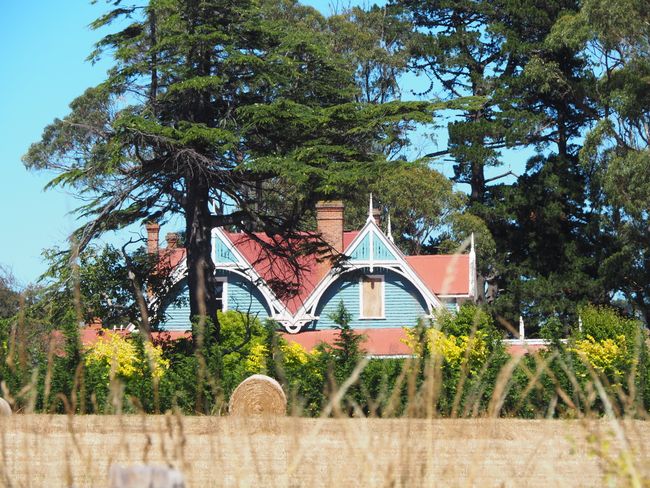
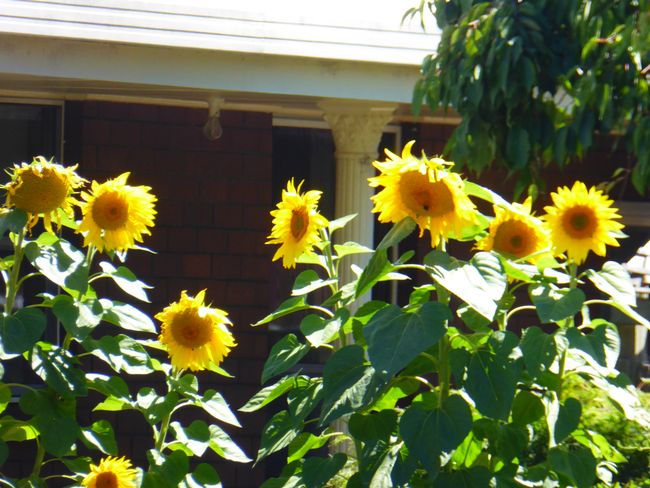
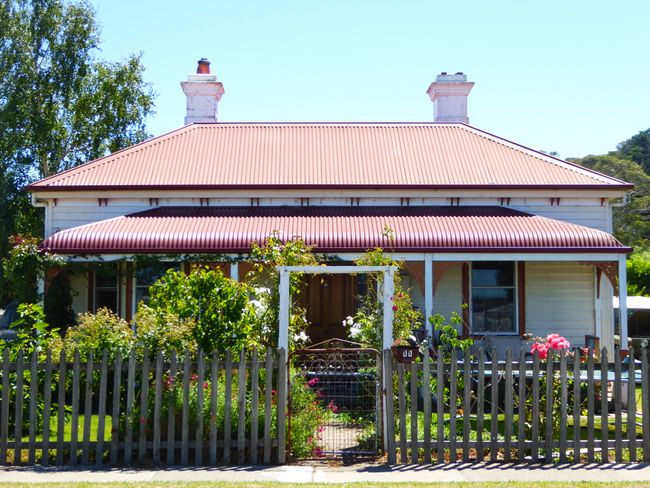
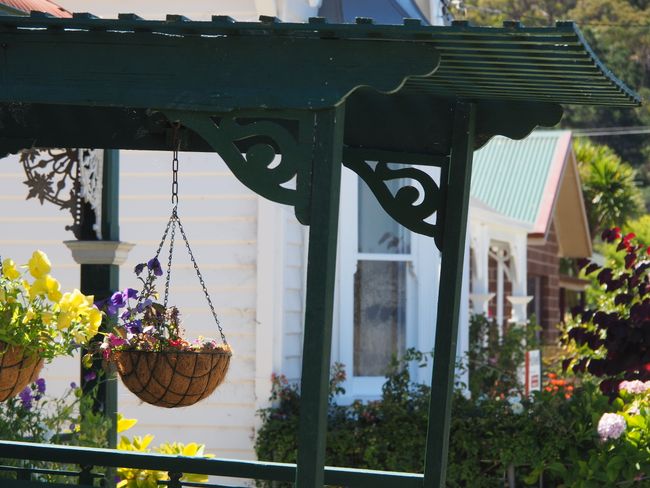
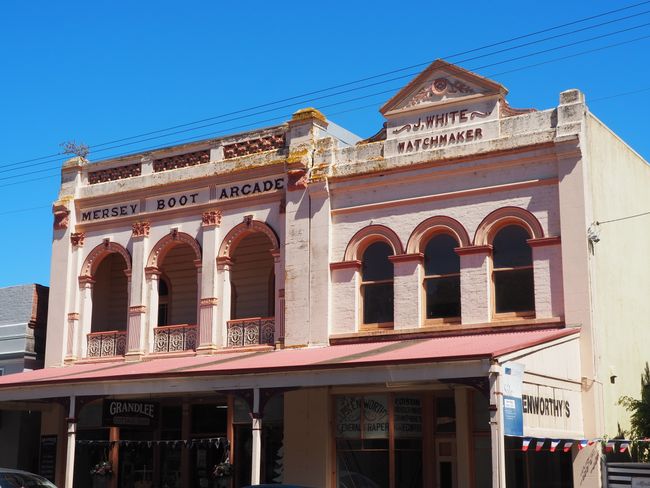
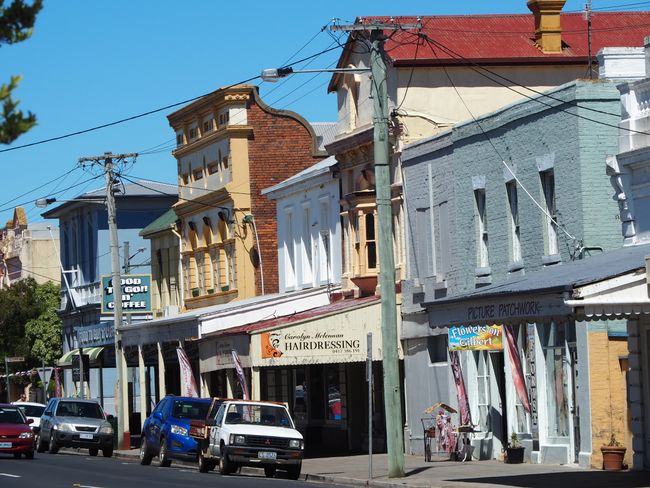
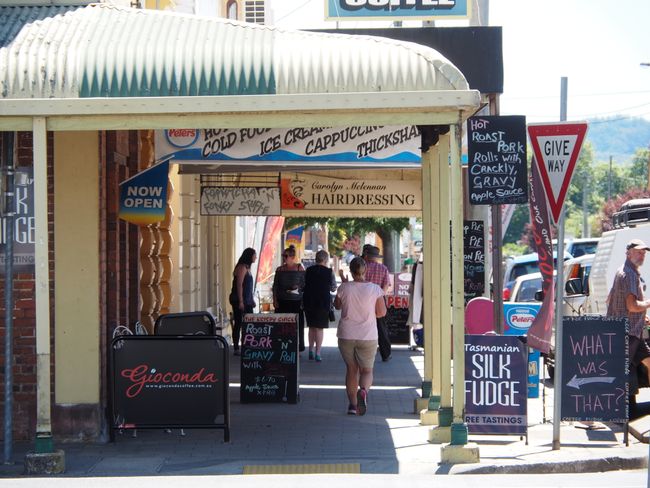
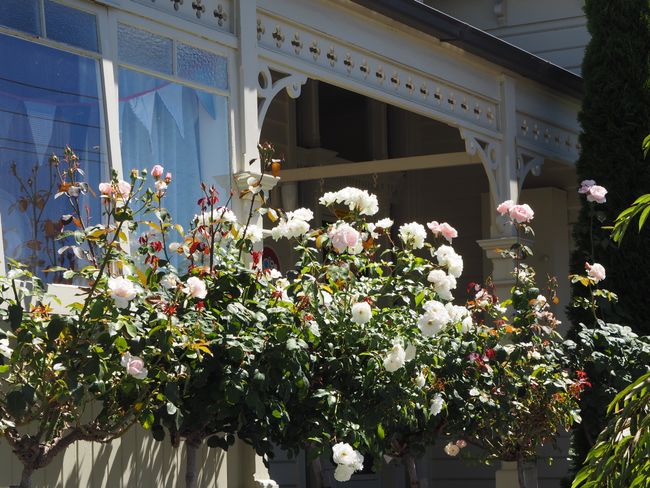
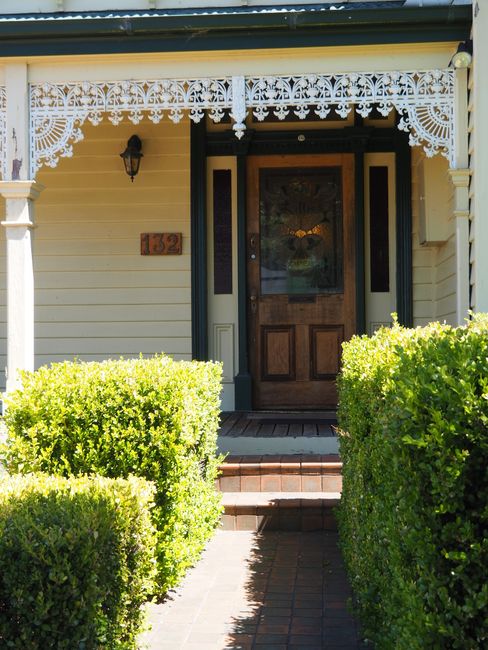
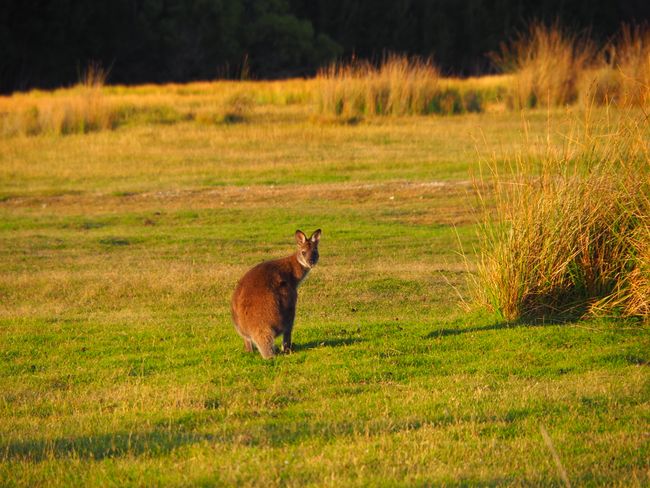
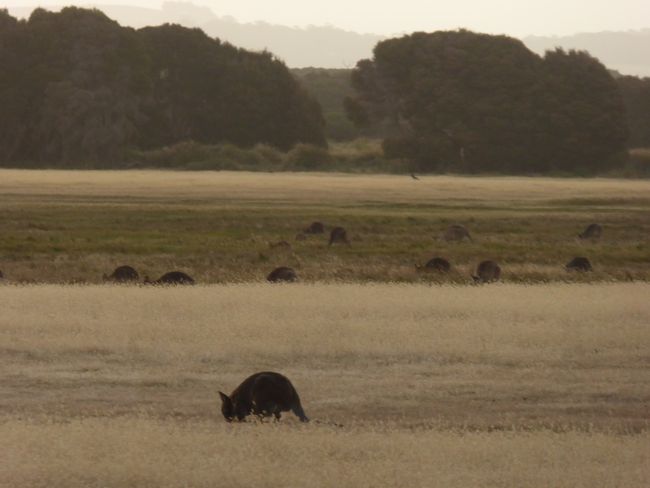
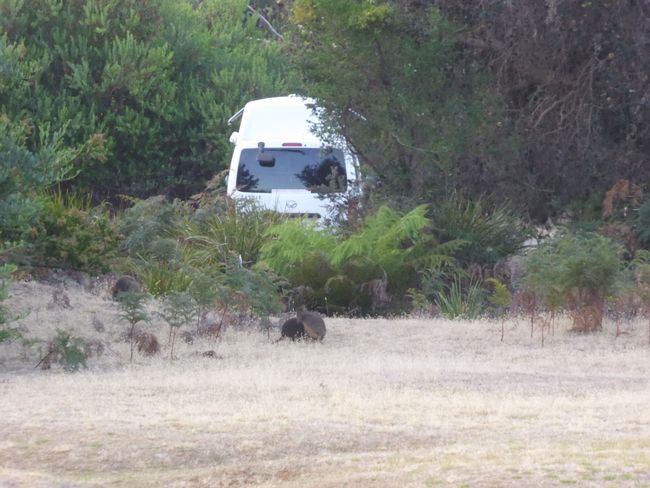
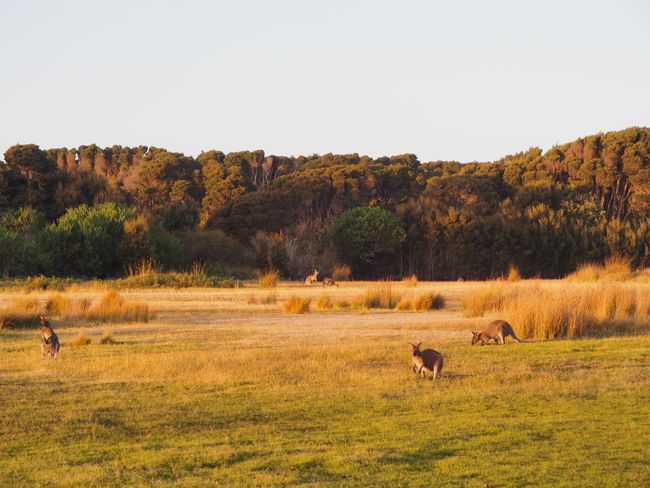
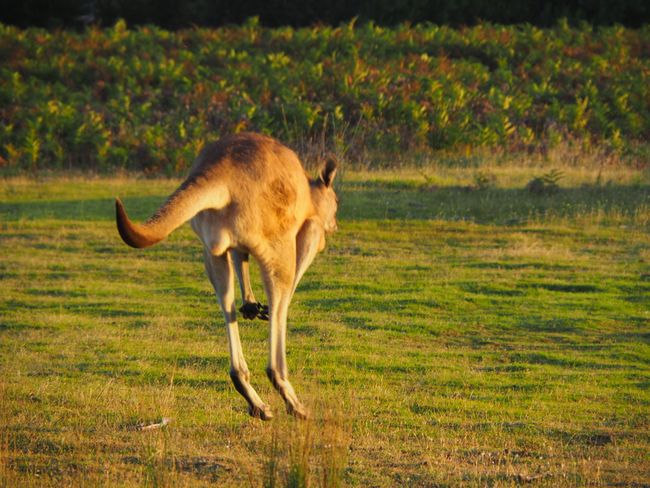
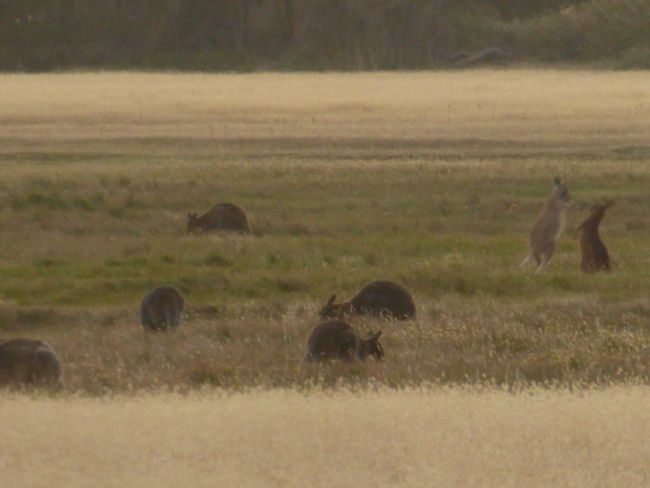
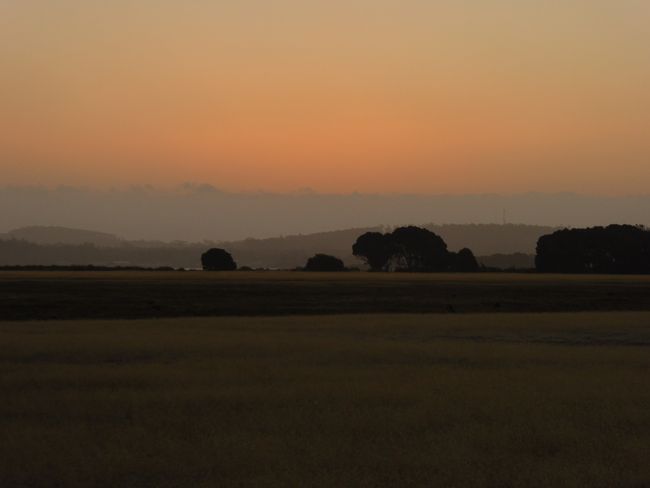
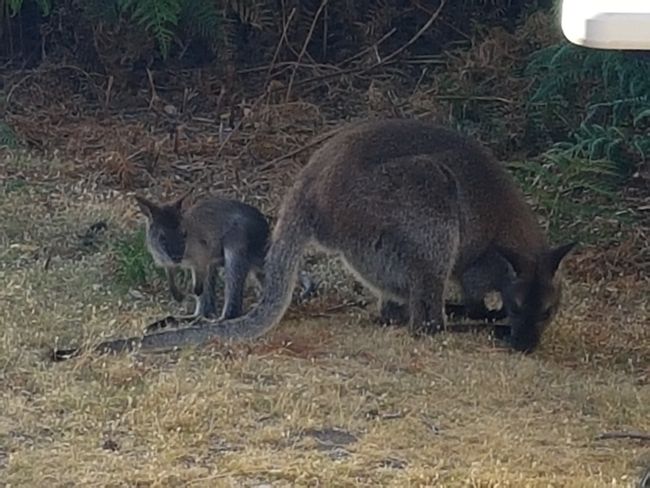
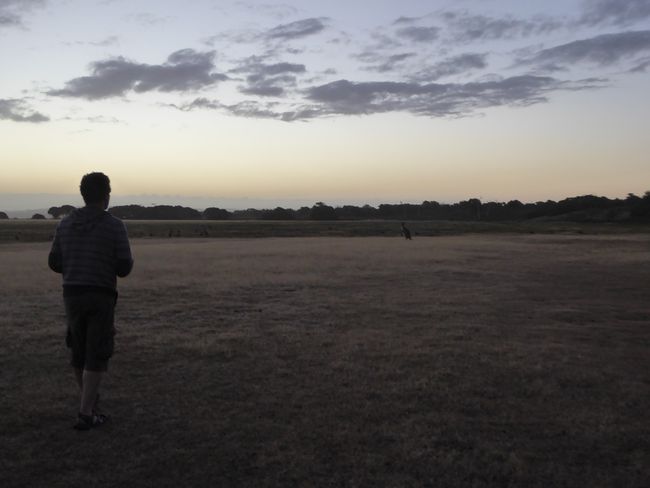
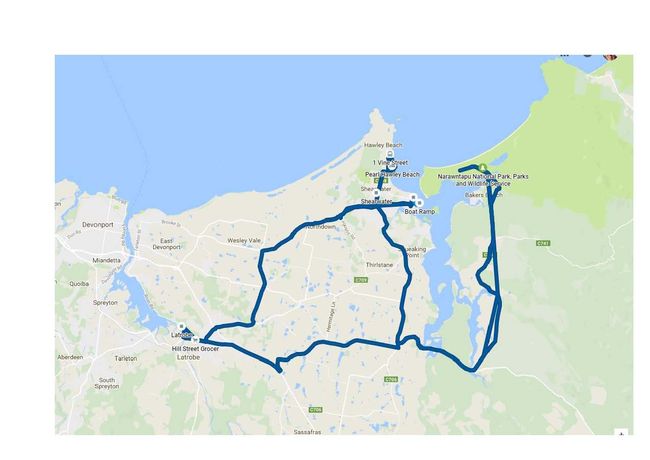
समाचार पत्रिका के लिए सदस्यता लें
Monday, 1/15/18
I wake up at 6am and look out one of the windows of my camper. A pademelon is curiously looking back at me, feeding with its mini-child next to my car. My heart is filled with joy - this is just amazing!
I walk to the washroom/toilet building and luckily, only a small amount of discolored water comes out of the showers. However, adjusting the warm water takes time and I have to hurry with my shower so that the 4 minutes are enough. The campground has emptied out. Two cars arrived last night around 10pm and set up tents in the pitch darkness. Except for one other person, they have all left.
The ranger, who I briefly met on my hike yesterday, stops by and asks how I liked my hike yesterday and informs me that the Visitor Center will be closed today because the employee who was supposed to work there is sick. However, he also checks my park pass, which I bought right at the beginning and without which one is not allowed to stay here. The system is quite susceptible to fraud. It's a do-it-yourself registration. You can find envelopes at small wooden stands where you place the corresponding money, tear off a stub, and carry it as proof. On it, you write down the type of pass (1 day, 2 months, 1 year) you "purchased". Then you put the envelope with the money in a locked box. But I wonder if everyone always puts the correct amount of money in.
I write in my journal until 10:30am because I rarely have time in the evening. There's just so much to see!
After washing dishes, packing up, and collecting string, I drive off and actually want to either go to the beach or head towards Bakers Point. The path to the beach is honestly too "bushy" for me and it's already hot and sunny, and my fear of snakes prevents me from walking through it. I also don't feel like putting on long pants/boots again. Since I'm not really a beach fan anyway and can't estimate if the path is really worth it, I decide to skip it.
So I get back in the car and turn towards Bakers Point. But this gravel road is a mess and after the drive yesterday, I really don't feel like driving 9 km one-way to Bakers Point and Griffith Point and then back. I drive about 1 km backwards because I don't want to get stuck again after my experience with turning maneuvers on gravel roads. Well then, nothing in Narawntapu today, so I drive to Port Sorell. It's a lovely drive through beautiful countryside with many cow pastures. Mountains can be seen in the distance. One has to drive around the very wide Rubicon River to get to Port Sorell. The town used to be the largest port in Tasmania and is blessed with many beautiful beaches with orange rocks again. On the way, I see a strange lizard with a compact body and a stumpy tail. Otherwise, no wildlife sightings.
Port Sorell is not really impressive, but I fill up on gas and head towards one of the beaches. It's hard to walk on the beach as you sink in up to your ankles with every step. There are few people on the beach, none in the water. I walk with my feet in the cool water and think to myself that it would be too cold for me to swim anyway. Another thing that annoys me and is somehow an Australian specialty: flies. These annoying pests that constantly buzz around you already got on my nerves in Western Australia because you just can't get rid of them. Only when a strong gust of wind comes, they're gone for fractions of a second. I drive a few hundred meters further to the jetty where children are playing - all in wetsuits because of the water temperature and the ozone hole. The beach is truly endless; on the opposite side, you can see small islands and the shoreline of Narawntapu National Park.
I continue driving north to the next town, Hawley Beach, with the same-named beach. I take a short break for reading above a bay in the shade for half an hour, but give up because of the flies and drive another one or two kilometers, go to the beautiful beach again to take photos of the amazing rocks. But here too - flies, flies, and you can't wave with one hand and take photos with two hands. Even walking on the beach is only possible with constant waving and therefore not a real option. If I lived here, I wouldn't enjoy this beach.
So now I drive about 18 km to Latrobe, a town that calls itself the world capital of platypus. It is also a historic town and until the end of this trip, I will not find another place with such a beautiful and large number of historic houses. I don't see any platypus, but I walk up and down the main street, in and out of a few side streets, and I'm delighted by the houses and old churches. There is public Wi-Fi at the old, small post office/library, where I check what's going on while sitting in the shade of a large tree and observe the little activity on the street. I get a piece of cake from a bakery and after taking some photos of the houses, I drive to the Mersey River, which flows behind the town. A local says he hasn't seen any platypus here in a long time, but he also doesn't come here every day. Doesn't really sound like the platypus capital... I start the journey back to Narawntapu around 4pm because I don't feel like searching any longer. I will see platypus for sure. If not here, then somewhere else.
After 40 minutes, I'm back at my spot that I marked with a camping chair and a note saying "will be back" - because here, you don't get assigned specific spots, you just park wherever it's available, but I prefer my old spot because I can look out the back of the camper onto the Springlawn.
There are two other campers here, so the three of us are on the approximately 10 spots. I'm hungry and take out my table and heat up a can of ravioli, adding a few fresh mushrooms. For washing up, I get the brown drinking water from the washroom/toilet building, boil it in a pot with dish soap, and then put the pot back in the cupboard. I didn't bother with using a plate anyway.
The sun is still shining quite brightly and only starts to become milder after 6pm.
I put on my long pants and hiking boots and walk through the Springlawn to the lagoon. There are wallabies and kangaroos sitting everywhere. Back at the campground, I come across 3 people - one from Tasmania and a couple from Calgary. The Tasmanian is grilling huge wallaby burgers from a mountain of ground meat. He still has at least 10 of them on the campground grill, which is a huge thing that you can use for free. I try half of one and it tastes really good. It's also spiced with a kick, as the meat is very lean. Later, he packs two more for me, but I don't eat them because I won't have time/opportunity to heat something up in the next few days and I don't like eating these things cold.
The fridge still smells like garlic after 3 days.
The Canadians and I go to the back field and watch the sunset, which isn't as spectacular as yesterday. Since kangaroos jump at bread, the Tasmanian brought bread for his friends. The kangaroos don't come running towards us, but there are some that hop by, slow down, turn around, and sniff the air. Eventually, larger Forester kangaroos come out of the forest and when the mosquitoes also arrive, we walk back to the campground in almost complete darkness. The Tasmanian has by now cleaned the grill and goes home with his group, while I use my flashlight to walk back to my camper.
During all my trips, I always have water, a flashlight, and usually my fleece jacket with me. The Canadians were walking around in shorts and flip-flops and were freezing. Because here, it's best around 10-12 degrees Celsius at night, plus wind.
I start a conversation with another camper, a German who is moving to Berlin in March. We stand in the dark Tasmanian bush and talk about property prices in Berlin. I don't need any more contact from home and retreat into my camper. These are the first German words I've spoken since leaving Frankfurt on 1/5.
समाचार पत्रिका के लिए सदस्यता लें
उत्तर
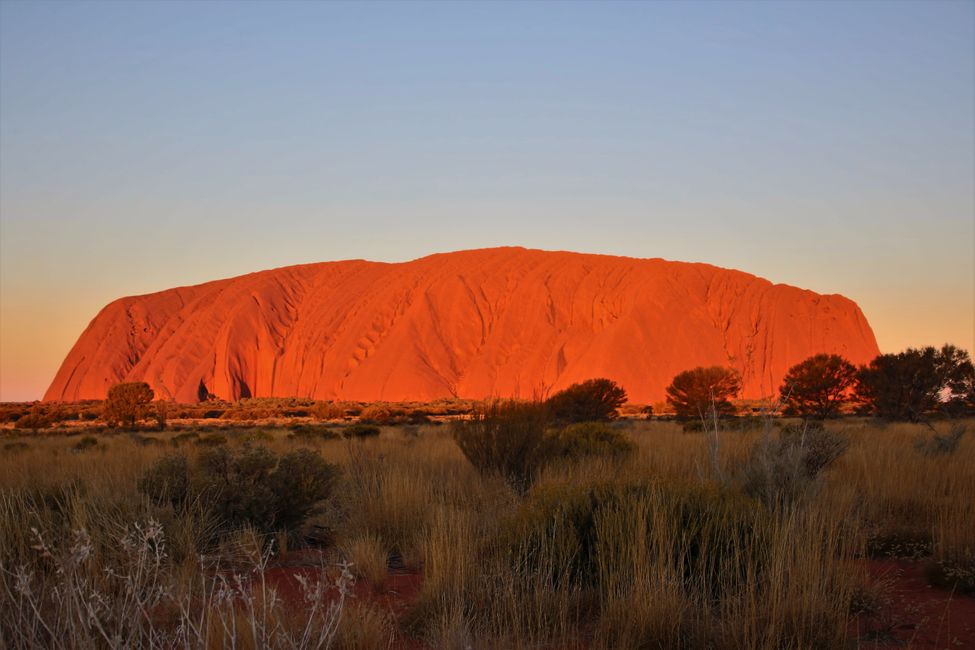
यात्रा रिपोर्ट ऑस्ट्रेलिया
